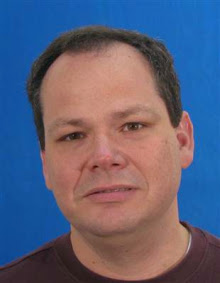EDUCATION
- 1987 – Medicine, BSc, The Hebrew University of Jerusalem
- 1992 – Medicine, MD, The Hebrew University of Jerusalem
- 2000 – Molecular Biology, PhD, The Hebrew University of Jerusalem
- 2004 – Pathology, Residency, Hadassah-Hebrew University Medical Center
PERSONAL STATEMENT
- I am a trained surgical pathologist, actively engaged in clinical work and serve as Chairman of the Department of Pathology at Hadassah Medical Center.
- I am also a trained molecular biologist, with expertise in mouse models of cancer and run a research lab at the medical school focusing on studying tissue interactions that modulate liver cancer progression, combing various methodologies including mouse genetic manipulation, imaging and molecular biology.
- In recent years we are combining our expertise in cancer diagnosis and in mouse models of cancer to develop new diagnostic modalities. As a mentor, I encourage students and staff to harness the power of tissue based analysis methods to reveal the underpinnings of disease processes and to look for specific points that are amenable for therapeutic manipulation.
- My position at the Department of Pathology at Hadassah provides us with a rich network of interactions with physicians that allows us to validate continuously the human relevance of our mouse findings.
POSITIONS AND HONORS
Previous Positions
- 1999 Resident, Department of Pathology, Hadassah-Hebrew University Medical Center, Jerusalem, Israel
- 2004 Senior Staff Pathologist, Hadassah-Hebrew University Medical Center, Jerusalem, Israel
- 2005 Lecturer, Hebrew University-Hadassah Medical School, Jerusalem, Israel
- 2006 Senior Lecturer, Hebrew University-Hadassah Medical School, Jerusalem, Israel
- 2011 Associate Professor, Hebrew University-Hadassah Medical School, Jerusalem, Israel
- 2017 Professor, Hebrew University-Hadassah Medical School, Jerusalem, Israel
Honors and Memberships
- 1988 Golda Meir fellowship
- 1990 Foulk’s foundation fellowship
- 1991 Award for excellence M.D. thesis
- 2002 Award for excellence in residency program
- 2003 The Daniel G. Miller Research Career Development Award – ICRF
- 2006 Yigal Alon Fellowship
- 2007 Teva founders’ award for young scientist
- 2011 Zelman Cowen Universities Fund Prize for Medical Research
- 2011 ERC Starting Grant “Heterotypic cell interactions in chronic hepatitis and HCC”
- 2013 Youdim family prize for cancer research
- 2013 Chairman of the research committee, Israel Association for Cancer Research
- 2015 Member, Executive Board, European Association for Cancer Research
- 2017 Chairman, ERC grant committee STG-LS4
- 2018 Member – American Association for Cancer Research (AACR) pathology task force
- 2018 German Cancer Research Center (DKFZ) – member of scientific advisory committee
CONTRIBUTIONS TO SCIENCE
Ten Key Publications relevant to the proposal (*Co-corresponding author, #Co-first authors)
- Pikarsky E. Neighbourhood deaths cause a switch in cancer subtype. Nature. 2018; 562:45-6.
- Finkin S, Yuan D, Stein I, Taniguchi K, Weber A., . . . Karin M, Heikenwalder M*, Ben-Neriah Y* & Pikarsky E*. Ectopic lymphoid structures as microniches for tumor progenitor cells. Nat Immunol. 2015;16:1235-44.
- Hefetz-Sela S, Stein I, Klieger Y, Porat R, Sade-Feldman M., . . . Wagner EF, Ben-Neriah Y, Baniyash M & Pikarsky E. Acquisition of an Immunosuppressive Pro-Tumorigenic Macrophage Phenotype Depends on c-Jun Phosphorylation. Proc Natl Acad Sci USA. 2014; 111:17582–87.
- Horwitz A, Stein I, Andreozzi M, Nemeth J, Shoham A., . . . Angel P, Ben-Neriah Y* & Pikarsky E*. Human and mouse VEGFA-amplified hepatocellular carcinomas are highly sensitive to sorafenib treatment. Cancer Discovery. 2014; 4:730-43.
- Pribluda A, Elyada E, Wiener Z, Hamza H, Goldstein RE., . . . Stiewe T, Oren M, Alitalo K, Pikarsky E* & Ben-Neriah Y*. A senescence-inflammatory switch from cancer-inhibitory to cancer-promoting mechanism. Cancer Cell. 2013; 24:242-56.
- Elyada E, Pribluda A, Goldstein RE, MorgensternY, Brachya G., . . . Alitalo K, Oren M, Pikarsky E* & Ben-Neriah Y*. CKIalpha ablation highlights a critical role of p53 in invasiveness control. Nature. 2011; 470:409-13.
- Biton M, Levin A, Slyper M, Alkalay I, Horwitz E, . . . Artis D, Hornstein E, Pikarsky E* & Ben-Neriah Y*. Epithelial microRNAs regulate gut mucosal immunity via epithelium-T cell crosstalk. Nature Immunology. 2011; 12:239-46.
- Gielchinsky Y, Laufer N, Abramovitch R, Granot Z, Bergman Y & Pikarsky E. Pregnancy restores the regenerative capacity of the aged liver via activation of an mTOR-controlled hyperplasia/hypertrophy switch. Genes Dev. 2010; 24:543-48.
- Pikarsky E#*, Porat RM#, Stein I#, Abramovitch R, Amit S., . . . Galun E & Ben-Neriah Y. NF-kappaB functions as a tumour promoter in inflammation-associated cancer. Nature. 2004; 431:461-6.
- Gidekel S, Pizov G, Bergman Y & Pikarsky E. Oct-3/4 is a dose-dependent oncogenic Fate determinant. Cancer Cell. 2003; 4:361-70.
ADDITIONAL INFORMATION: RESEARCH SUPPORT AND SCHOLASTIC PERFORMANCE
- Currently Web of science (ISI): h-index 39; sum of times cited 6579; without self-citations 6476
- My funding is from the Israel Science Foundation (Center of Excellence program), Adelson Medical Research Foundation (AMRF), and The German Cancer Research Center (DKFZ) – Israel Ministry of Science and Space (MOST) program.


